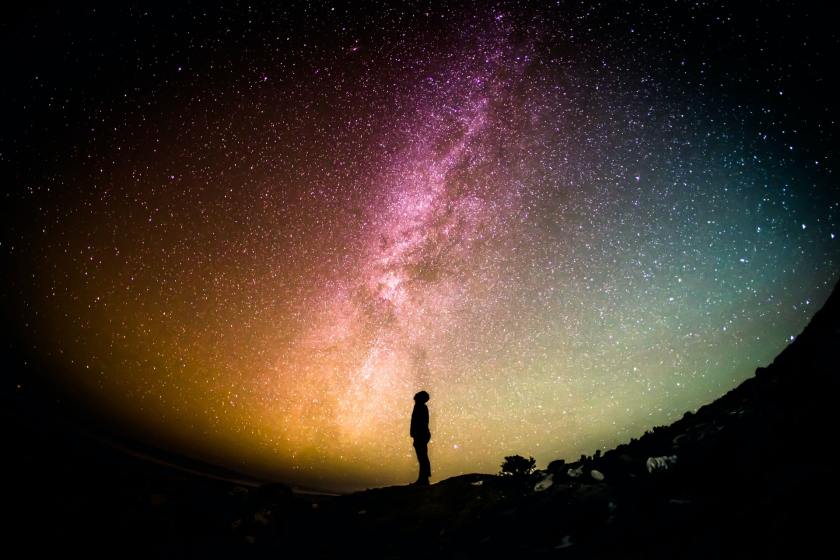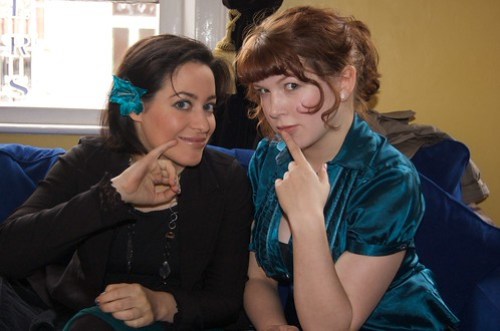
Out of the blue I got a message from the mysterious Sam. I have known Sam for a while and sometimes we have chats in coffee shops while I work on Fridays. We are quite different characters and that always makes the discussions we have interesting, sometimes too interesting as I’m slightly distracted from my work.
The message read…
I was a bit busy when I got it, doing user testing on visual perceptive media (paper coming) but later in the day, I checked it out.

Second degree dinners is a concept by Nat Eliason while getting to know interesting people in a new city.
Four months ago I moved to Austin knowing no one in the city but my 9 coworkers and a couple of acquaintances.
The problem I immediately needed to solve was:
“How do I find interesting new people?”
I tried Meetups, bars, events, all the typical places. But in almost every case, the return on investment in terms of “interesting people met” to “time spent” was terrible.
The best way to find people seemed to be to meet someone interesting, then try to meet as many of their close friends as possible.
But getting your friends (especially new ones) to throw parties or invite you out to things doesn’t scale and makes you feel needy, so how do you get looped into everyone’s friend network at once?
Ok the quantification of time vs effort in this case is a little awkward. But he does have a point. This is something I found when I moved from London to Manchester and in part when moving from Bristol to London.
I guess if you quantified the time, it would be pretty poor but I got to do crazy things like eat at every single Chinese restaurant in London’s China town over a period of a year. Good use of time, well I guess not but heck I enjoyed most of them. Quantification of enjoyment and experience is hard to do…
But back to the point!
What is a Second-Degree Dinner
A Second-Degree Dinner brings together 6 people who, mostly, don’t know each other.
There are two “hosts.” Both hosts invite someone who they enjoy spending time with and that they think is interesting.
Then, both of their invitees are expected to invite someone that they think is interesting and send them the invitation as well.
This way, the two hosts and the two initial invitees only know two other people at the dinner. They get to meet three new people.
The second-degree invitations will know only one person and get to meet four.
Best of all, you’re only meeting pre-vetted people. No weirdos, not some rando who’s trying to sell you on their social media consulting, only cool people.
Once the dinner starts, everyone goes around and says:
- Who they are
- Where they’re from
- What they’re working on
- Something they’re excited about. It could be a new book, app, relationship, anything that has them jazzed up.
The intros usually happen during ordering / getting drinks. It’s a good way to break the ice, make sure that everyone knows each others’ names, and give a bit of a background for the next portion.
Then the real fun begins. You go back around the circle, and each person talks about one thing that they’re struggling with or that’s a challenge in their life.
As soon as I read this, I thought of Me & Jodys dating idea where we have 8 strangers together for dinner with each other. It was similar an idea and we called it the starter, but romance was the core reason for them being put together. We did a test run with friends and it worked quite well, everybody seemed to have a good time and the feedback agreed with this. Yes its similar to Table8 but they are not the first to think of bring singles together in a group blind date type thing.
Unfortunately when we actually tried to run it at the Manchester flirty weekend, we failed to get enough men to sign up. We actually had 32 women! signed up and waiting and only one man (not including myself)! I’m actually suprised I haven’t wrote about this but I did spill the beans in a Lovegrumps podcast a while back. and my let down in mankind.
So I know this can work and I’ll actively be encouraging Sam to make it happen, even if I have to arrange most of it myself (ha!). Talking of which Nat has lot of tips on how to go about this. Lots are very much the social event stuff I’ve picked up running things like geekdinners, barcamps, etc.
I especially like…
Be Vulnerable First
As the host of the event, it’s your job to set the tone for how open everyone can be. You should share first during the workshop, and you should open yourself up through your challenge. Talk about an insecurity, weakness, fear, something that people wouldn’t expect a stranger to be comfortable talking about.
It’s scary, but people appreciate the openness and respond in kind. If you just talk about something very surface level, then no one else will open up either.
I’m not sure what Sam’s plans are but if he wants to make it a monthly thing, I wouldn’t say no. Thanks for highlighting this to me, I like it a lot and more I think about it, the more it makes me more excited and happy. I got a whole ton of people I could invite along but it all depends on the details.
Serendipity don’t you just love it?
Will you find more interesting people through this idea?
Most likely yes. Friends of friends is one of the best networks you have access to, this has been tested and proven to death. Add a level of serendipity and you are on to something. This why social networks are so popular and young people (use?) to find dates through friends of friends

Its important that the people are interesting in themselves (as in they are interesting, not in them-self). I have ideas about this which I wrote up in a follow up to Russell Davis’ original post. It was wonderful to talk about this at BarCampManchester6 and have katrina patel blog her thoughts afterwards.
Interesting people attract interesting people I’m sure… Its a attractor, like positive people tend to attract positive people?













